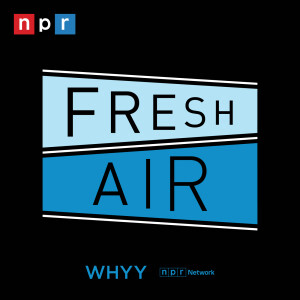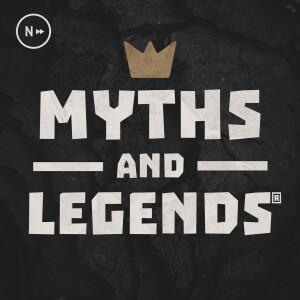

In "The Molecule Of More," authors Daniel Z. Lieberman and Michael E. Long explore the concept of desire and how it affects human behavior. The book argues that dopamine, a neurotransmitter in the brain, plays a central role in driving our desires and influencing our actions.
The authors assert that dopamine is responsible for our pursuit of more - more money, more success, more love - and that it has evolutionary roots. They explain that humans have developed a "more" drive over thousands of years as a survival mechanism, as it motivated our ancestors to seek out food, mates, and resources.
Lieberman and Long discuss how our modern world, with its abundance and myriad choices, can lead to an excessive pursuit of more. They explore how this pursuit can have negative consequences, such as addiction, stress, and anxiety. The book also delves into the connection between dopamine and mental health, examining how imbalances in the neurotransmitter can contribute to conditions like depression and ADHD.
"The Molecule Of More" also emphasizes the societal implications of our desire for more, discussing how it affects our relationships, work, and overall satisfaction with life. The authors propose strategies for managing our desires, so that they can be channeled towards positive outcomes rather than negative ones.
Overall, the book offers insights into the neurological basis of desire and provides a framework for understanding the role of dopamine in shaping human behavior. It prompts readers to critically examine their own desires and consider how they can find a healthier balance in pursuing more.
Chapter 2:the meaning of The Molecule Of More book"The Molecule Of More" is a book written by Daniel Z. Lieberman and Michael E. Long. It explores the role of a neurotransmitter called dopamine in our brains and how it impacts our desires, motivations, and the pursuit of pleasure.
The book suggests that dopamine is the "molecule of more" because it drives us to seek more of what we desire and ultimately, more of everything. It delves into the evolutionary history of dopamine, its functions and effects in our brains, and how it influences our behavior.
Lieberman and Long argue that the pursuit of "more" can be both beneficial and detrimental. While dopamine drives us to achieve our goals, to seek rewards, and to constantly strive for better things, it can also lead to addictive behaviors, impulsive decision-making, and a never-ending cycle of desire.
The authors explore various aspects of human life influenced by dopamine, including relationships, work, and consumerism. They discuss the impact of dopamine on our society, economy, and overall well-being, and provide insights into how we can navigate these influences in a healthier and more fulfilling way.
Overall, "The Molecule Of More" offers a scientific and philosophical perspective on the role of dopamine in our lives and provides readers with a better understanding of the complex interplay between our desires, motivations, and the pursuit of happiness.
Chapter 3:The Molecule Of More book chapters"The Molecule of More" by Daniel Z. Lieberman and Michael E. Long explores the neurochemical forces that drive an individual's desire for more. The book delves into the concept of dopamine, a neurotransmitter responsible for motivation and reward, and how it influences our behavior.
Chapter 1: The Pursuit of More - Introduces the concept of the "molecule of more" and how dopamine drives our desire for greater accomplishments, wealth, and experiences. It explores why humans are always seeking more and the impact of dopamine on our brain's reward system.
Chapter 2: The Power of Expectations - Focuses on how our expectations shape our dopamine response and drive us to pursue more. It looks at the influence of cultural, social, and internal expectations on our desire for more.
Chapter 3: The Link Between Pleasure and Desire - Explores the connection between pleasure and desire, discussing how dopamine influences our motivation to seek more pleasurable experiences and how it can lead to maladaptive behaviors.
Chapter 4: The Chemistry of Novelty - Discusses how dopamine responds to novelty and why we are prone to seek new and exciting experiences. It explores the impact of novelty on our dopamine levels and the implications for addiction and decision-making.
Chapter 5: The Curse of Comparison - Explores how our desire for more is influenced by social comparison. It discusses how dopamine drives our need for status, recognition, and superiority, and the consequences of constantly comparing ourselves to others.
Chapter 6: The Science of Motivation - Focuses on the neuroscience of motivation and how dopamine regulates our drive to pursue goals. It discusses the role of dopamine in intrinsic and extrinsic motivation, and the impact of dopamine dysregulation on motivation.
Chapter 7: The Paradox of Progress - Explores the paradoxical relationship between progress and the desire for more. It discusses how societal advancements have led to a constant push for more, but also tackles the negative consequences of this pursuit.
Chapter 8: Finding Balance in a World of More - Provides strategies for finding balance in a society obsessed with more. It discusses the importance of self-awareness, setting realistic goals, and finding fulfillment beyond external achievements.
Chapter 9: Redefining More - Challenges the traditional notion of more and suggests redefining success and happiness. It proposes a shift towards intrinsic rewards and cultivating a sense of contentment without constantly pursuing external markers of success.
Overall, "The Molecule of More" explores the powerful influence of dopamine on our pursuit of more and provides insights into how we can find balance and redefine our desires in a society that constantly pushes for more.
Chapter 4: Quotes of The Molecule Of More book- "We are wired to want more because wanting more is often what drives us to achieve great things."
- "The molecule of more is a powerful force that can either propel us forward or consume us entirely."
- "In the pursuit of more, we must learn to strike a balance between ambition and contentment."
- "The molecule of more pushes us to constantly seek new experiences and challenges, but it is important to recognize when it becomes excessive and detrimental."
- "Embracing the molecule of more can inspire innovation and creativity, but we must also learn to appreciate what we already have."
- "Our desire for more can lead to both success and failure, and it is important to understand how to harness its energy effectively."
- "The molecule of more can fuel our passions and drive us to excel, but it is also essential to find meaning and fulfillment in the present moment."
- "By acknowledging the power of the molecule of more, we can channel its energy towards personal growth and self-improvement."
- "Excessive attachment to the molecule of more can lead to discontentment and a perpetual cycle of dissatisfaction."
- "Finding a balance between the molecule of more and contentment is the key to living a fulfilling and meaningful life."
More Episodes
All Episodes>>Create Your Podcast In Minutes
- Full-featured podcast site
- Unlimited storage and bandwidth
- Comprehensive podcast stats
- Distribute to Apple Podcasts, Spotify, and more
- Make money with your podcast












